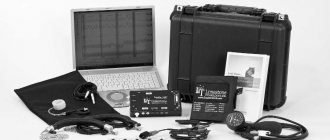12.08.2020
Sleep is one of the most mysterious phenomena about which we still know very little. How does the body recover during sleep? Why does sleep disruption cause serious mental and physiological problems? Where do dreams come from and what do they mean? Scientists, of course, managed to obtain some answers, but most of the questions still remain unanswered.
What is important for us is that sleep is a universal means of recovery, which allows us to remain alert, healthy and, as a result, more productive compared to those who, for one reason or another, do not regularly get enough sleep. Below we will talk about the causes of insomnia, its consequences and how to deal with it at home.
Causes of insomnia
There can be many reasons why you cannot fall asleep at night. More importantly, without enough sleep, you put your body and nervous system at risk. If you have a hard time waking up in the morning, are constantly irritated, and feel tired during the day, you are probably not getting enough quality sleep.
Headache is another consequence of insomnia and sleep disorders. Morning headache is one of the most common. It occurs precisely due to lack of oxygen. Lack of oxygen, in turn, occurs due to the fact that the room is poorly ventilated. If you ventilate the room well using, for example, ventilation, your head will not hurt.
In addition, symptoms of lack of sleep can include loss of appetite, memory loss and constant drowsiness. Simply put, if you're having trouble falling asleep and waking up, you likely need to rethink your sleep schedule.
Ten minutes is enough for a healthy person to fall asleep. If it takes much longer, the following factors are likely interfering:
- Bright light . The screen of a monitor, smartphone, TV or, for example, a desk lamp that is not turned off deceives your natural internal alarm clock, which makes falling asleep much more difficult. To fall asleep quickly and efficiently, you need to turn off the lights and also close the window if it’s day outside.
- Unfavorable microclimate . If the air is bad or stale, it is more difficult for the body to enter a relaxed state, which can also cause insomnia. Ventilate the bedroom, monitor humidity and prevent the appearance of allergens - by following these simple rules, you can fall asleep quickly and soundly at night.
- Food quality . Coffee, alcohol and high-calorie foods prevent the transition to deep sleep. Due to the consumption of foods that irritate the nervous system, the brain continues to work even in a half-asleep state, which causes lack of sleep. Therefore, you need to eat healthy food, not drink and not smoke - it would seem obvious things, but for some reason many people forget about it.
- Excessive load . If you worry about something or play sports right before bed, you won’t be able to fully rest, because distracting thoughts or tense muscles will prevent you from doing so. If you have problems sleeping, we recommend that you engage in vigorous activity in the first half of the day.
- Strong odors . Too bright odors also prevent the body from completely switching off, diverting its attention to the sense of smell. Therefore, in order to fall asleep quickly, do not use excessively irritating air fresheners, perfume, or leave food in the bedroom.
It is important to make going to bed a kind of ritual. Transform your bedroom and bed into a place dedicated exclusively to sleeping. If you watch TV in bed, play games or even read, over time your brain will learn to do all the necessary things first, and only then turn off. Thus, even if you just lie in bed and try to fall asleep, the body will not allow you to do this, expecting its usual actions - watching your favorite TV shows, etc.
Circadian rhythms: night for sleep, day for work
- Scientifically, the biological clock is the suprachiasmatic nuclei in the brain. Every cell and even individual molecule in the nucleus knows that there are 24 hours in a day. The point is that they not only remember, but also maintain the same daily rhythm.
- For suprachiasmatic nuclei, illumination is the main signal. They are directly connected to the visual center. When it gets dark, the cells in the nuclei receive a signal to put all other systems in the body to sleep. And, on the contrary, the sun has risen, which means it’s time to wake up.
- The biological clock can be adjusted, but within a couple of hours. For the brain, frequent changes in rhythms are traumatic; an example of this is jet lag - a depressed state and insomnia after changing time zones.
- The chronotype is a system of suprachiasmatic nuclei. It is determined by our genes: some people are indeed born more of a lark than an owl. But this only affects how quickly you get up with the sun and how traumatic a night without sleep is for you.
How to fall asleep quickly
The main sign of impending problems caused by insomnia is the inability to fall asleep. Simply put, if you lie in bed for a long time, scrolling through any situations or monologues in your head, most likely you have sleep disorders. There are several methods to help you fall asleep without medication. By the way, taking sleeping pills can harm the body if you use them constantly.
What you need to fall asleep quickly:
- Count sheep or any other objects. It would seem a banal method, but diverting attention to monotonous thoughts makes it possible to disconnect from anxious experiences and quickly fall asleep.
- Imagine any familiar object and try to examine it carefully, mentally rotating it and changing the distance to it.
- Dream, or remember a pleasant moment in life. Using this advice, in some cases you can fall into so-called controlled sleep, which you can control at your own will.
- Sit back comfortably in bed, relax and lift your eyeballs slightly under your eyelids. This eye position is considered natural for the deep phase of sleep and allows the body to relax faster.
- Try focusing on the physical sensations, mentally keeping your attention on your fingertips or face. Experts in the study of processes occurring during sleep assure that this life hack also allows you to quickly fall asleep without sleeping pills.
Interestingly, the thoughts or objects that you imagine while freely fantasizing say a lot about your mental state.
Breathing and relaxation
These methods are based on exercises that allow you to quickly relax your muscles and establish proper breathing.
Breathing technique 4-7-8
This breathing method was developed by Dr. Andrew Weil. Its essence lies in the ability to independently regulate your breathing and relaxation.
Cycle of 4-7-8 breaths:
- You need to place your tongue behind your front teeth.
- Then, allowing your lips to lift slightly, exhale with a slight whistle through your mouth.
- Next time, inhale through your nose (count to 4 to yourself).
- Then hold your breath for a couple of seconds, 7 to be exact.
- After this, exhale through your mouth again, making a whistle (this stage should take 8 seconds).
Complete four complete cycles of these exercises and feel your body fall into sleep. There is no need to worry if you lose track a little while mastering the method; this will not cause any trouble.
Progressive muscle relaxation
This method is based on deep muscle relaxation, leading to quick and comfortable sleep.
How to use it:
- Tighten the muscles in the eyebrow area for 5 seconds, then relax completely, wait 10 seconds.
- Then smile broadly, relax again and pause for 10 seconds.
- Squint your eyes for 5 seconds, relax your eye muscles, pause for 10 seconds.
- Raise your neck slightly so that your eyes are directed at the ceiling, look there for 5 seconds, then lower your head to the starting position. Take a 10 second break.
- Continue down the rest of your body, from your triceps to your chest, from your hips to your legs.
These exercises will help you overcome relaxation and fall asleep.
Sleep depends on air quality
The worse the air, the more difficult it is to sleep. Therefore, most of us try to ventilate the room before going to bed or even sleep with the windows open. Unfortunately, this is not always possible. In cities, the street is usually very noisy and if you open the windows, it will simply be impossible to sleep. In addition, for six months in our country in most regions there is a cold temperature and open windows can cause colds and constant discomfort.
“Fortunately, there is a way out here too. To sleep in silence, while keeping the air fresh, you need to install supply ventilation, which will continuously provide air flow from the street.”
Fresh air has a soporific effect, which has long been known in the medical community - in hospitals, oxygen is used to put patients to sleep. Therefore, the presence of fresh air ventilation guarantees that you will fall asleep quickly and have deep sleep.
How does the supply air purifier work:
- The purifier provides a continuous flow of air, which allows you to maintain high oxygen levels. If this does not happen, the brain experiences oxygen starvation, leading to poor sleep quality and headaches in the morning. In addition, high-quality ventilation allows you to get rid of such problems as long and painful falling asleep. The influx of fresh air allows you to fall asleep much faster, and the sleep itself ceases to be sensitive, becoming deeper.
- If you install a ventilator, you do not need to open the windows. This allows you to get rid of the so-called peak noise load, which is the main reason that the brain does not fall into deep sleep. That is, we can get used to uniform noise, but if the sound changes the volume level (for example, a car passes under the windows), we are constantly in a semi-drowsy state, unable to fully fall asleep. Supply ventilation allows you to solve this problem.
If the room you sleep in is well ventilated and you don't have to open the windows, your sleep will be deep and restful. A few hours will be enough for you to fully recover and feel fully rested. After several days of good sleep, your health will improve and your performance will increase significantly. That is why, with poor sleep and insomnia, it is important to take care of proper ventilation.
A small example of how fresh air makes sleep deep and quality. If you have ever lived outside the city in a wooden house, you know how well you sleep in it. The secret is in the fresh air that enters the house through the walls, because... wood can “breathe”. By installing a supply air purifier, you can create the same conditions as in your dacha, ensuring a restful and deep sleep, no matter where your home is located.
When is sleep disorder especially dangerous?
After just three completely sleepless nights, a seemingly healthy person may experience delusions, hallucinations, attacks of acute psychosis, and epileptic seizures. Seven days spent without sleep ends in guaranteed death. It has long been established that symptoms of insomnia are independent risk factors for heart disease and stroke.
In some cases, sleep disturbance is not even a bell, but a bell signaling a mortal danger to life. Gleb Lutokhin says:
“A strong young man, 28 years old, complains of snoring and sudden cessation of breathing during sleep. At night, the wife had to push her husband away more than 40 times an hour, restarting the breathing process. This is a case of central apnea - a pathology in which the medulla oblongata stops giving the body the command to inhale. Such situations very often end in the death of the patient. As it turned out, the patient had a congenital organic pathology in which the vertebral artery compresses the respiratory center of the medulla oblongata. We have selected the appropriate ventilation option. For the rest of his life, the patient will have to sleep with a device that will control his breathing and breathe for the owner in those moments when he stops doing it on his own. But the patient sleeps well, does not get tired during the day, and has even lost weight.”
Supply ventilation device
Supply ventilation is a regular pipe through which street air is supplied to the room. To ensure the most stable and uniform flow, a fan is installed in the system. Moreover, most systems can change the air supply speed, which allows you to create a comfortable microclimate in the room.
The air conditioner does not solve the problem of fresh air and oxygen, since it cools the air that is already in the room, so it is useless for deep sleep and falling asleep quickly.
Rest for pregnant women
In the first 12 weeks, pregnant women are allowed to sleep in any position, but after crossing this line, they will have to think about organizing proper rest. For expectant mothers, the choice of position is modest and limited to the right and left sides. Doctors recommend paying attention to the second option.
This way, the baby receives the optimal amount of nutrients and oxygen, and the heart works well.
Attention! Sleeping on the right side is undesirable due to the fact that the fetus puts pressure on the liver, causing the organ to work in emergency mode. In the future, this may affect the woman’s health.
From 28 weeks you should not sleep on your back:
- blood flow to all organs is disrupted;
- lower back pain;
- limbs go numb;
- the baby's oxygen supply deteriorates.
Pregnant women need at least 10 hours of regular sleep. If you feel unwell, an additional 2-3 hours of sleep during the day will improve the situation. If the expectant mother is bothered by something in her sleep or has problems falling asleep, the following will help fix it:
- charger;
- healthy eating;
- water aerobics;
- aromatic baths before bed;
- herbal teas;
- yoga;
- relaxation;
- gymnastics for pregnant women.











